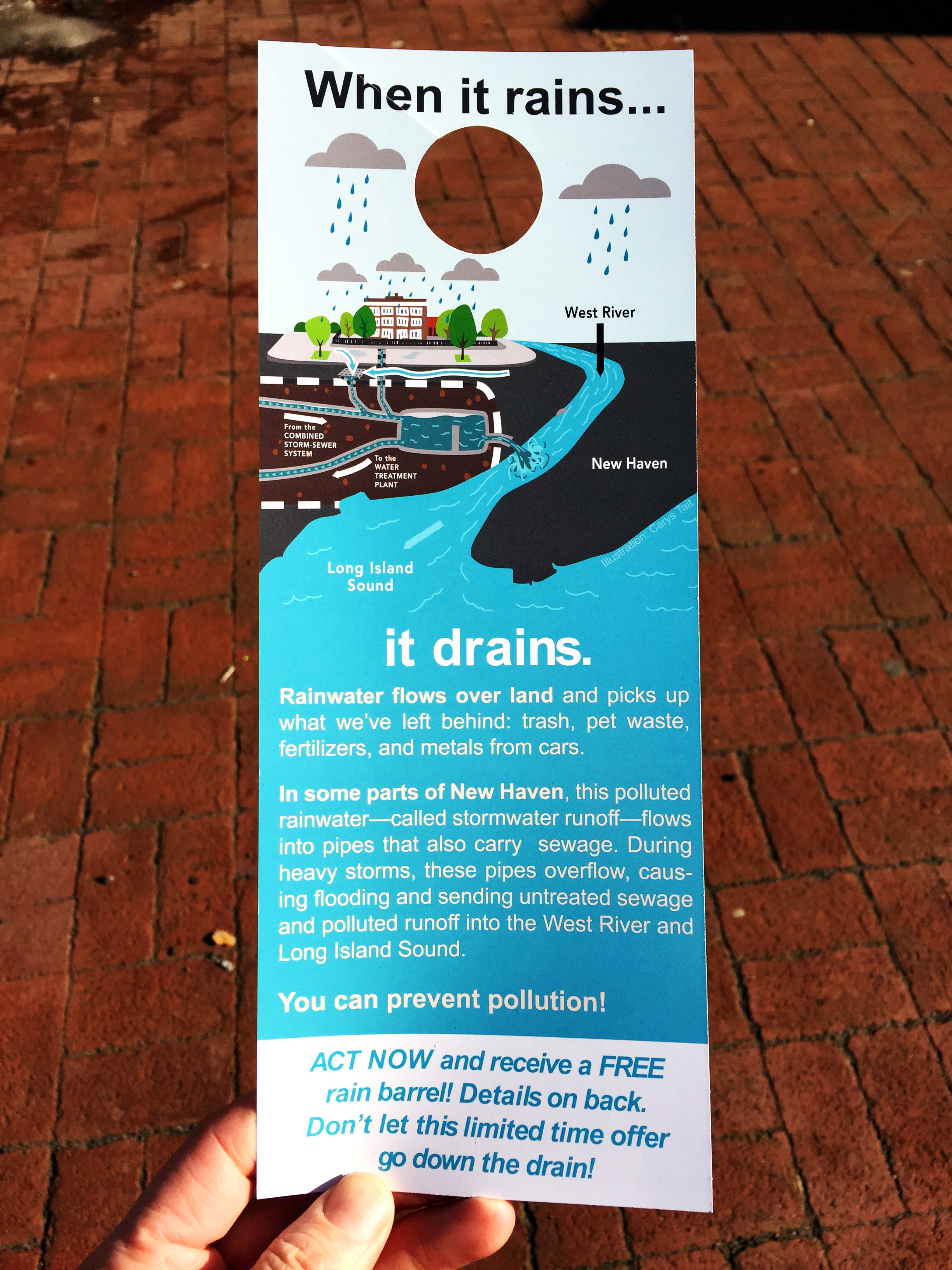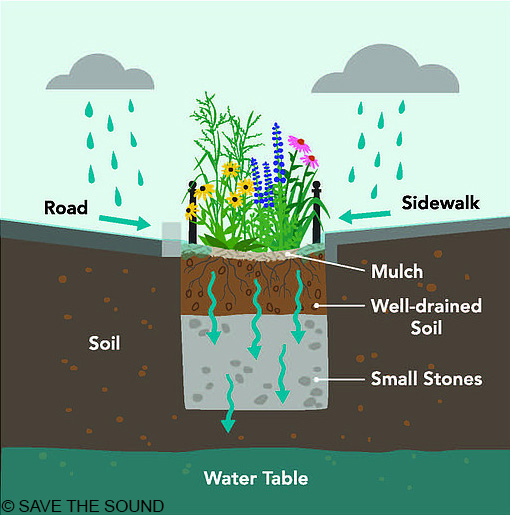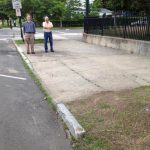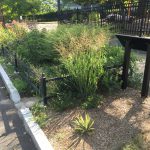This week’s Fridays in the Field post comes from Kendall Barbery, Green Infrastructure Program Manager:
The West River—which flows from Bethany, CT, to New Haven Harbor—is on Connecticut Department of Energy and Environmental Protection’s (CT DEEP) 303-d list of impaired waterbodies due to high levels of bacteria and other pollution. According to the West River Watershed Plan, untreated stormwater and combined sewer overflows are the two largest sources of bacteria in the lower West River.
In 2014, with funding through a United States Environmental Protection Agency Clean Water Act Section 319 grant administered by CT DEEP, Save the Sound installed a rain-loving garden called a bioswale next to the Edgewood School in New Haven. The bioswale captures and filters stormwater runoff before it reaches the West River and flows into Long Island Sound. This year, we secured additional 319 funding, which will allow us to install several more bioswales in the area and bolster our efforts to restore the West River and other waterways that feed into Long Island Sound.
With help from a local Common Ground School student, I set out to canvas the Dwight neighborhood of New Haven in mid-December to talk with community members about the upcoming bioswale installations…
***

It was two weeks before Christmas and all through New Haven, not a creature was stirring…except Kendall and Ihsan, who braved the bitter cold to go door-to-door in the Dwight neighborhood to hang fliers on door knobs and talk to neighbors about stormwater runoff and combined sewer overflows.
“Stormwa-huh? Combined sewer what?”
“It’s OK. We are here to help!”
If you heard us rapping on your door, but didn’t answer, this is what you missed (in addition to the candy cane):
Hello intrepid neighbor, thank you for joining us below freezing!
I’m Kendall, I work with Save the Sound. This is Ihsan, a student at Common Ground High School. We’re here to spread the word about a project that Save the Sound and the City of New Haven are working on in your neighborhood that will help to reduce pollution to the West River. May we tell you more?
Yes, please!
Thank you!
Rainwater flows over land and picks up what we’ve left behind: trash, animal waste, fertilizers, and metals and grease from cars. This polluted rainwater—called stormwater runoff—is a serious problem for Long Island Sound and its tributaries. But the problem doesn’t end there!
In some parts of New Haven, including the Dwight neighborhood, stormwater runoff flows into pipes that also carry sewage. During some storms, these combined storm-sewer pipes become inundated with stormwater runoff more quickly than they can transport it to the East Shore wastewater treatment plant, causing flooding and overflows of untreated sewage and polluted runoff—combined sewer overflows, or CSOs for short—into the West River and the Sound.
It’s true, the pipes were designed to overflow rather than back up into your basement. But the more buildings and roads and hard surfaces that we construct, the more stormwater runoff we create, because rain water has fewer and fewer places to soak into the ground. As a result, we end up with tens of millions of gallons of untreated stormwater and CSOs in the West River (and hundreds of millions into New Haven Harbor) each year.
And all of this pollution is bad for people and wildlife.
Would you like to know how you can help keep the West River clean?
Yes, please!
You can help us build gardens that soak up the rain!

Save the Sound and the City of New Haven are working together to build rain-loving gardens that capture and filter stormwater runoff and give it a place to soak into the ground.
These gardens—called bioswales—are like a filter and a sponge. The plants and soil that you see on the surface help clean and absorb stormwater runoff. Below the surface, plant roots, soil, and stone clean the water even more before it soaks deeper into the ground.
Over the next several years, you may start to see a lot of bioswales being built around the city and in your neighborhood, including four along Platt Street and Edgewood Avenue—that we hope to construct this spring. We’d love your feedback and your help.
Would you like to be involved in a bioswale planting workshop this spring?
Yes, please!
OK, great! All we need is your name and the best way to get in contact with you.
We’re also offering a free downspout disconnection assessment and rain barrel installation, but supplies are limited, so it’s on a first-come first-served basis.
A downspout disconnection assessment entails looking at the outside of your house to find out where your roof gutters and downspouts are located, figuring out how much runoff your roof produces during a storm—it depends on how large your roof is, and identifying where all that water goes when it leaves your roof. We’d work with you to schedule a time to do the assessment, when the weather is warmer, of course, this spring.
If it’s feasible to disconnect your downspouts and install a rain barrel to capture roof runoff, we’d take care of the heavy lifting and then teach you how to maintain it.
Would you like to sign up?
Of course, yes!
Thank you for braving the cold to speak with us!
— And thank you for reading up on our exciting green infrastructure work in New Haven. If you’d like to help out with our upcoming bioswale planting workshops, please write to us at reducerunoff@savethesound.org or call us at 203-787-0646.
We hope to see you this spring!


